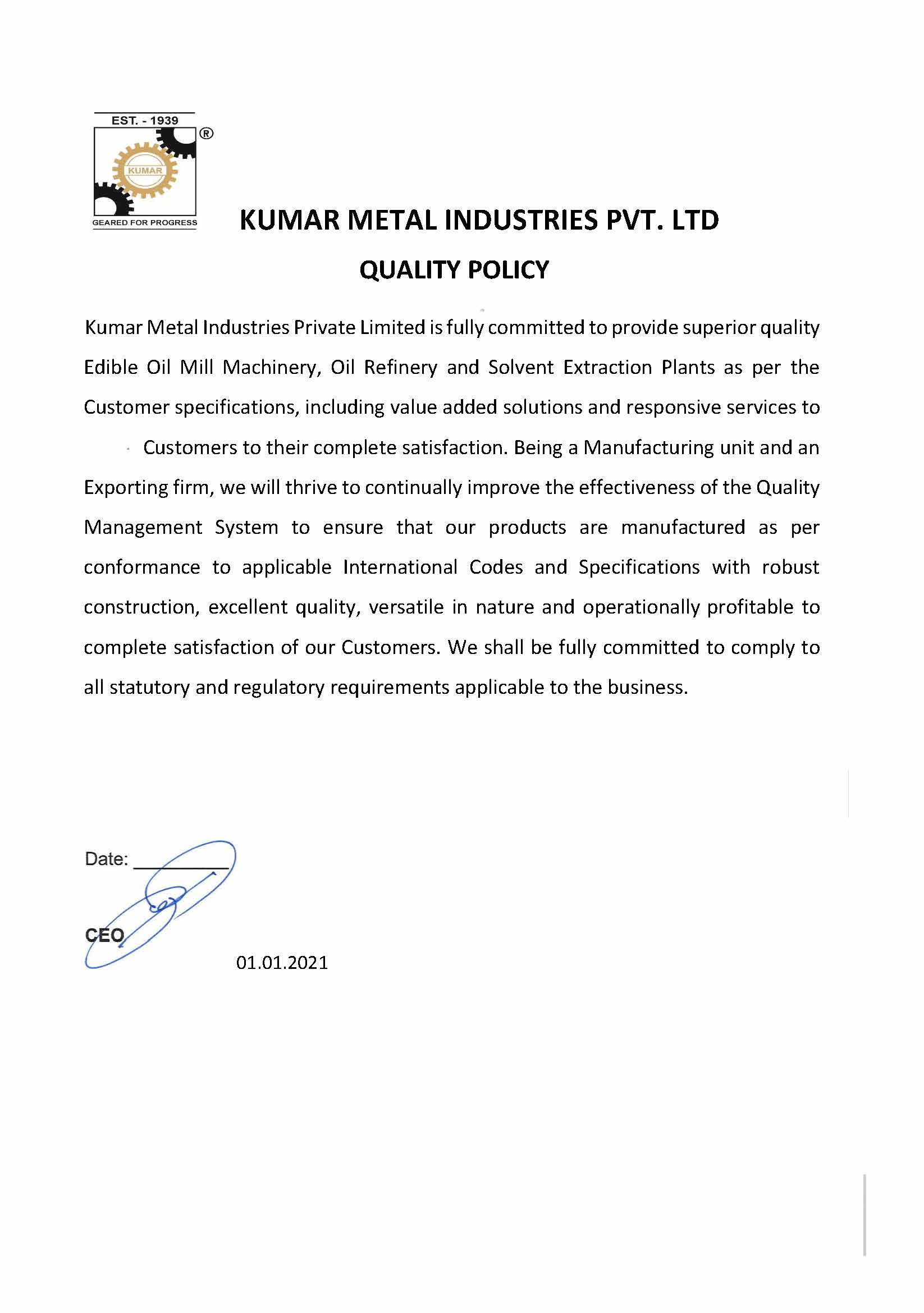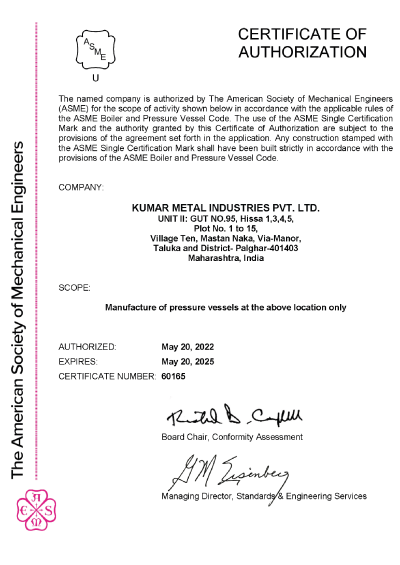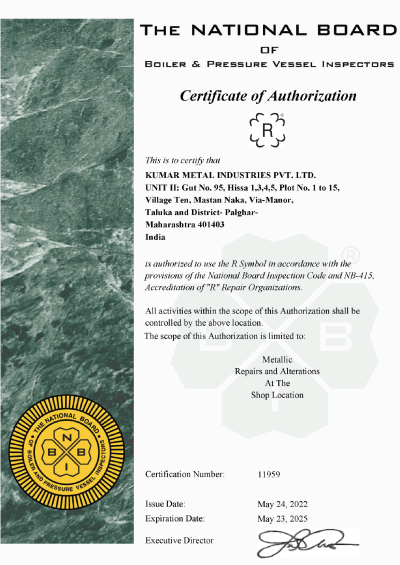
Edible plant-based oils are an integral part of cultures and cuisines the world over. They not only contribute to creating rich flavours but are also an important source of essential nutrients for human beings. But from olive, sesame and coconut oils to sunflower, rice bran, palm oil and beyond, each oil-bearing plant has a distinct chemical composition, oil content, and biological activity. These diverse characteristics translate to diverse quality and safety standards, which translate to complex and varied challenges for the cooking oil industry. These challenges exist at every step of the industrial value chain, from cultivation, harvesting and processing to storage and distribution.
Every member of the global edible oil industry has a role to play in ensuring food safety. As one of the leading EPCC companies in India, we at Kumar are particularly concerned about the part that process engineering companies like us can play in ensuring safe and dependable solutions for the vegetable oil industry in India and globally.
What’s at stake? The need for food safety in edible oil industries
Edible plant-based oils are extracted from different parts of plants like seed, fruit, or bran. They are mainly used to cook food, but they also have applications in the production of health supplements, cosmetics, and other consumer products. As highlighted by a review article in the journal Frontiers in Plant Science, edible plant oils are chemically complex and comprise fatty acids, microelements, active compounds as well as the fat-soluble vitamins A, D, E, and K.
Fatty acids, which could be either saturated fatty acids (SFAs) or unsaturated fatty acids (UFAs), are the major components of oils. UFAs have important functions in the human body – they maintain the relative fluidity of cell membranes, reduce cholesterol, and increase blood microcirculation and the activity of brain cells. Depending on the specific type of oil, however, the precise fatty acid composition varies. Plant oils also have trace components necessary for human health. For instance, soybean oil has phosphorus (P), magnesium (Mg), and potassium (K) in large quantities, while walnut oil has high amounts of P. They also comprise esters (which decompose or oxidise easily by heat to form aldehydes and other volatile short-chain secondary oxidation products) and phenols (like tocopherols, polyphenols, phytosterols, and pigments) which affect the functionality and oxidation stability of edible oils. Since these constituent elements affect how a certain edible oil reacts during production, usage, and storage, they are important determinants of the safety and quality of products that the cooking oil industry produces.
Food safety risks in the global edible oil industry
As with any other country, the vegetable oil industry in India has a complicated supply chain in which all players’ roles are interlinked. Risks to food safety in the cooking oil industry may arise during cultivation, harvesting, storage, processing, packaging, or at any other point in the life cycle of the plant-based oil source. Problems or errors in one part of the process can affect the final product quality, so for the sake of human health, it is important to ensure food safety in every part of the global edible oil industry.
As a training manual of the Food Safety and Standards Authority of India (FSSAI) explains, food safety supervisors keep an eye out for four different kinds of hazards in the vegetable oil industry in India. One – physical hazards. These include inanimate foreign objects like glass, chipped pieces from equipment, metal shavings, blades, stapler pins, hair, lint, plastic, fingernails or any other contaminant that could pose a danger to consumers.
Two – chemical hazards. These could be either naturally occurring or process-induced contaminants which can cause food-borne illnesses. Allergens, mycotoxins, toxic metals, pesticides, cleaning products, chemical food additives, packaging material residues, and equipment lubricants all fall into this category. Three, biological hazards include bacteria like salmonella and yeast and moulds like candida and Aspergillus. Such contaminants are responsible for food-borne infections or intoxications. And finally, allergens – ordinarily harmless substances which cause allergic reactions in certain people. Common allergens like gluten-containing cereals, crustacea, eggs, fish, and milk must always be declared. In edible oil industries, peanuts, soybeans, their products, and tree nuts and nut products are the most commonly encountered allergens.
Ensuring food safety in the cooking oil industry: What EPCC companies can do
While the onus of ensuring that edible oil is safe for human consumption lies with the oil manufacturer, EPCC companies have a significant contribution to make in simplifying the food safety process. The FSSAI has outlined certain guidelines to help edible oil processing companies comply with the mandatory sanitary and hygiene requirements specified in Part II of Schedule 4 of the Food Safety and Standards (Licensing & Registration of Food Businesses) Regulations, 2011 under the Food Safety & Standards Act, 2006. These are the sections of the FSSAI guidelineswhich are particularly relevant to process design and engineering companies involved in edible oil industries.
Location and surroundings of edible oil industries
When designing a plant for oil extraction or refining, engineering companies should be mindful that manufacturing, processing, and packaging premises are located away from sources of pollution like open drains, garbage yards, and factories emitting gaseous or particulate pollutants into the air. Additionally, measures should be taken to protect processing areas from environmental contamination in the form of pests, odours, dust, etc., from external sources. Finally, the edible oil processing area should not have direct access to any residential area.
Layout and design of food establishment premises in the vegetable oil industry in India
The FSSAI demands that the layout and design of edible oil mills should be unidirectional, with no backward flow of materials. Such a design will prevent raw materials, intermediate products, and finished products from intermingling with each other and minimise the chances of cross-contamination.
The walls, floors, and ceilings of the edible oil processing facility should be constructed of impervious materials which are smooth and easy to clean. There should be no flaking paint or plaster. The space should be maintained regularly such that there is minimal dirt accumulation, condensation, and mould growth. The doors should also be made of smooth and non-absorbent surfaces which are easy to clean and disinfect; automatic closing springs or strips can help minimise contamination risks. The floor of the edible oil facility should have an appropriate slope and drainage, with drainage flow in the direction opposite to the edible oil preparation area. All drains should be covered to stop rodents or insects from entering the processing area. And all openings to the external environment – like windows, doors, etc. – should be fitted with wire-mesh or insect-proof screens.
Equipment and containers used in the cooking oil industry
EPCC companies serving the vegetable oil industry in India should ensure that the equipment they fabricate is designed to minimise contact with unwanted substances. Equipment and containers like tanks, hoppers, expellers, pipes, hoppers, filters, and packaging machines come into contact with raw materials, intermediate products, and finished edible oil products during oilseed preparation, handling, oil processing, and storage. This is why all contact surfaces should be made of non-corrosive, rust-free materials; they should be smooth and groove-free, easy to clean, non-toxic, non-reactive, and of food-grade quality. Food-grade stainless steel is the ideal material for construction. Each utensil and container should be designed for easy cleaning, should be properly fitted with a cover, lid, or clean gauze net, and should be kept away from any potentially contaminated equipment.
Facilities used in edible oil production
Utilities and facilities employed in the oil production process should not introduce any contaminants into the edible oil. The water supply used for oilseed conditioning, oil refining, oil washing, and equipment cleaning should be potable, at the very least, and not introduce hazards into the process. This means that the EPCC partner should provide clean and safe water storage and distribution facilities. Steam used in oilseed heating should be of higher purity than potable water. Colour coding is an efficient way to avoid contamination.
Coming to drainage and waste disposal – waste generated in edible oil industries like product spillage, bleaching earth, spent earth, and degummed oil should be collected regularly, stored in a manner that does not introduce contaminants into the edible oil production facility or storage area, and disposed of in an appropriate manner. As per the regulations of the Environment Pollution Control Board, solvent extraction units and edible oil refinery units require effluent treatment plants.
Air quality and ventilation systems in the global edible oil industry should be designed and built in a way that does not allow airflow from contaminated areas to clean areas. Additionally, sufficient ventilation or aeration of the seeds or nuts during storage helps ensure that moisture levels remain low and microbial development is restricted. Ventilation at workstations involved in raw material handling, milling, handling of bleaching earth, and use of solvents is also extremely important.
The FSSAI guidelines also list certain specifications for lighting, personnel facilities, toilets, and other components of the cooking oil industry. Lighting should be enough to allow food handlers to maintain hygiene, and all lights should be covered to prevent oil contamination due to breakages. Meanwhile, personnel facilities must include hand washing and drying systems with potable water supply, self-closing or elbow-operated taps, soap solution, and disinfectants.
The ultimate test: Behind the scenes at an edible oil testing laboratory
Appropriate precautions and controls should be instituted at every facility in the cooking oil industry to prevent contamination and ensure food safety. But even with the most carefully planned and implemented measures, there are sometimes inadvertent lapses which could result in threats to human health. EPCC companies can help their customers ensure food safety by establishing a well-equipped edible oil testing laboratory in the oil plant premises. When an oil manufacturer wants to conduct sampling and regular testing or suspects potential contamination, an in-house edible oil testing laboratory is ideal and a good alternative to an FSSAI-accredited lab. The testing requirements that an edible oil testing laboratory in India should meet are specified under Clause 2.2 of the FSSR, 2011, with oils and fats primarily tested for parameters like refractive index, moisture, saponification value, unsaponifiable matter, iodine value, acid value, flash point, and Polensky value to assess quality and safety.
This article offers a preliminary glimpse of the many things that EPCC companies must keep in mind as they design and construct oil extraction or oil refining plants for companies not only in India but around the world. There are many more details and specifications at every step of the value chain where contaminants may be introduced, and therefore, precautionary measures should be instituted, but at Kumar, we account for them all. We at Kumar are committed to quality; we keep the wellbeing of our customers’ customers at the heart of everything we do. This is why our engineering solutions for edible oil industries conform to global standards and go above and beyond to make your edible oil products safe and healthy for all.
Request a callback
Since 1939, Kumar has been delivering dependable process engineering solutions to the oils and fats industry. We're known for our robustly engineered, versatile, and operationally profitable plant and machinery. It's why customers all over the world depend on us to solve their processing challenges, big or small. If you'd like to know more about our solutions, please fill out the form below:
"*" indicates required fields




















Fantastic article and very thoughtful. Thanks for posting a link to it on LinkedIn.